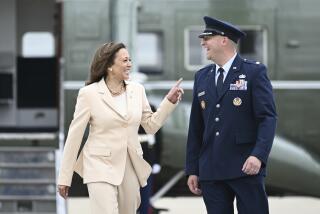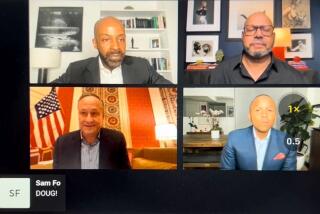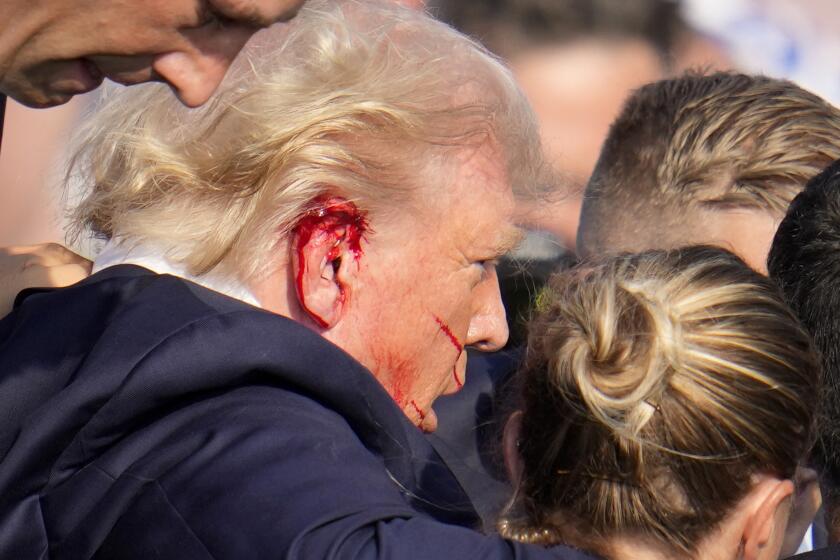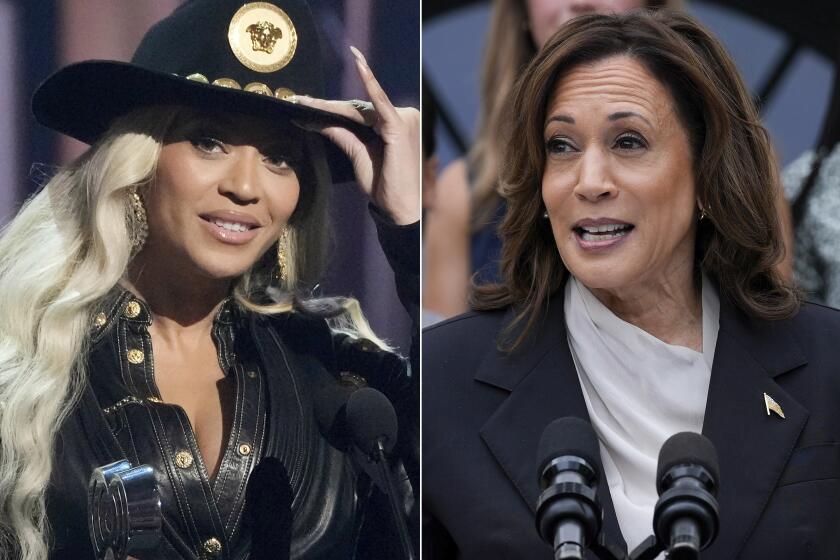The Worst Year for Prohibition Since 1933?
Earl Dodge is a 71-year-old teetotaler with a Carry Nation coffee mug and a passion for the days when beer was illegal, gin was brewed in bathtubs and alcoholism was a moral failing, not a disease.
Now for the sixth time, the antibooze activist from suburban Denver is running for president as head of the Prohibition Party.
So far, he’s on the ballot only in Colorado, a state brimming with microbreweries, where the mayor of Denver runs seven bars and the Republican candidate for Senate is Pete Coors, owner of one of the world’s biggest beer makers.
“What better place to be?” asked Dodge, sitting in a cluttered office festooned with unsmiling portraits of past Prohibitionists. “I don’t want to puff myself up, but I think this is a calling. God wants me to do this.”
But some of his former colleagues don’t.
The Prohibition Party has been on the skids for nearly a century. Efforts to drum up excitement for a postmodern temperance movement have fizzled. And the dismal 2000 election result, when Dodge netted 208 votes, was the worst showing in party history. Disaffected Prohibitionists grumbled that their leader was dragging them down, paying more attention to his mail order campaign button business than the future of the party.
“Selling buttons is my livelihood,” Dodge retorted. “And it’s a fascinating hobby. I’ve learned so much about history.”
Late last year, a group of dissidents got together at a rural Tennessee condo and voted Dodge out as national chairman. They formed the Concerns of People (Prohibition) Party and nominated their own presidential candidate.
“Earl was promoted to chairman emeritus -- which is a nice way of saying you’re fired,” said James Hedges, one of the dissident leaders.
The 66-year-old tax assessor in rural Thompson Township, Penn., is the only Prohibitionist in office today. He’s a retired tuba player for the U.S. Marine Band, and his political biography notes he was twice named Outstanding Individual Recycler by the Pennsylvania Resources Council.
“Our party has been tapering off for about 100 years, and Earl wasn’t doing anything to keep it going,” Hedges said. “He still can’t get used to the idea that he’s been replaced.”
Dodge ignored the coup, held a party convention at a Baptist church and was again nominated for president. Hedges said the convention was simply a gathering of seven or eight family members and friends. Dodge insists there were as many as 25.
“These other people -- they all want to be big chiefs in a little pond,” he said.
Thanks to the schism, Colorado voters will have two temperance parties to choose from in November. Unlike other states, Colorado doesn’t require a petition to get on the presidential ballot.
No one actually knows how many members either party has. Hedges figures his group has two dozen or so and Dodge has fewer than 200.
The Rev. Gene Amondson is the candidate for the breakaway party. He’s an artist from Vashon Island, Wash., who travels the country reenacting the fiery antidrinking sermons of the late evangelist Billy Sunday.
Amondson, 60, describes himself as a “redneck, Bible-thumping preacher,” with a simple message: Drinking alcohol is stupid.
“Alcohol has no taste at all; it’s just a burning sensation,” he said. “You don’t drink to have a good time; you drink to forget a bad time.”
And he dismisses the story of Jesus turning water into wine.
“If Jesus turned water into alcohol he wasn’t very bright about alcohol was he?” he said. “I think it was grape juice.”
Dodge takes a more measured tone.
He sees himself as standard bearer of a once great party that was among the first to fight for child labor laws, women’s suffrage and the right of workers to unionize.
The Prohibition Party began in 1869 and was one of the first “third parties” in American history. Its symbol was the camel, a creature that drank little and then only water. Carry Nation, the hatchet-wielding zealot who chopped up saloons in the late 1800s, was probably the best-known antiliquor crusader.
In 1920, the 18th Amendment was passed banning the sale of alcohol. Clandestine bars flourished while gangsters like Al Capone made fortunes running moonshine. Prohibition was repealed in 1933.
Dodge believes it was a golden age in American history, a time when jail populations dropped, alcoholism decreased and the quality of life rose for everyone. He lectures around the country on the glories of those years.
“I have, for many years, offered $20,000 to any student who would study the Prohibition era and could prove crime, alcohol consumption and other alcohol-related ills actually increased from 1920 to 1933,” Dodge told an audience at Yale University this year. “My money is still safe.”
The father of seven doesn’t fit the stereotype of the priggish Prohibitionist.
He is a chatty, good-natured man with a seemingly endless supply of historical anecdotes.
His office is a shrine to teetotalers gone by.
One entire corner is covered with photos and memorabilia of President Coolidge, the taciturn New Englander who spoke so little he was nicknamed “Silent Cal.”
“A woman once came up to Coolidge when he was eating and said, ‘I just bet my friend I could make you say three words,’ ” said Dodge, suppressing a chuckle. “Without missing a beat, Coolidge lifted his head and said, ‘You lose.’ ”
Dodge grew up in Malden, Mass., outside Boston. He recalls walking by saloons and feeling nauseated at the smell of stale beer. His parents didn’t drink and his Baptist church frowned on alcohol. He never drinks either and calls those who do “drunkards.”
In 1952, Dodge joined the Prohibition Party, and he has spent more than three decades as national chairman. Over the years, he supplemented his income by driving a frozen food truck as well as selling cemetery plots and life insurance. Now he deals in old campaign buttons.
The buttons bear the faces of politicians like Alf Landon, Wendell Wilkie, Winston Churchill, Franklin D. Roosevelt and of course Earl Dodge, as leader of the Prohibition Party.
Yet he understands politics enough not to be naive about his chances for higher office.
“To me it’s a tremendous honor just to run,” he said. “But I know if I go to the White House, it will be on a publicly guided tour.”
More to Read
Get the L.A. Times Politics newsletter
Deeply reported insights into legislation, politics and policy from Sacramento, Washington and beyond. In your inbox three times per week.
You may occasionally receive promotional content from the Los Angeles Times.






